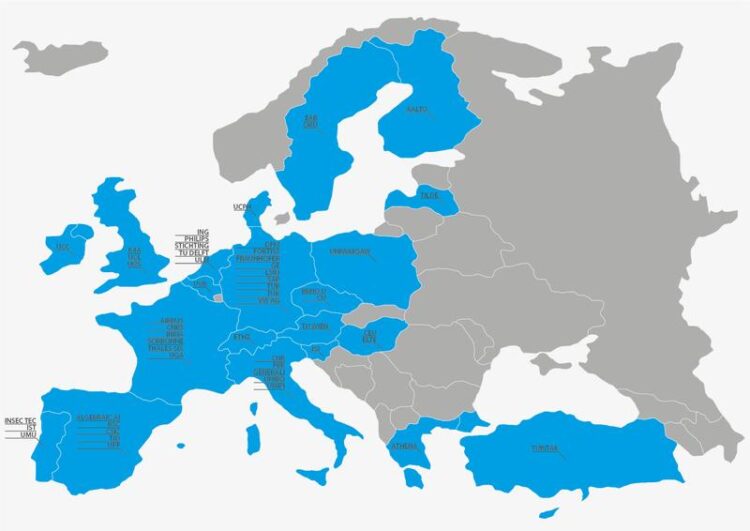HumanE-AI-Net: AI that understands humans

HumaneAI across Europe
HumanE_AI_Net
A European network, which aims to develop human-centered AI with ethical values, has been launched under the leadership of DFKI.
HumanE-AI-Net brings together top European research centres, universities and key industrial champions in a network of centres of excellence which will develop a truly human-centric brand of European AI and strengthen Europe’s position in global competition. This ambitious project, which is being funded by the European Union initially for three years, started in early September.
Trustworthy AI with comprehensible decisions
“To be accepted by society, AI systems must be considered trustworthy and, above all, their decisions must be comprehensible. They have to “understand” people in order to be able to adapt to complex real-life environments and to act appropriately and ethically in social environments,” says Prof. Dr. Paul Lukowicz, head of the Embedded Intelligence Research Department at DFKI and coordinator of HumanE-AI-Net. “People and machines have different strengths, however, if we succeed in developing systems in such a way that they understand our human world view, they will, in turn, deliver comprehensible decisions and results”.
The aim is to create an AI that knows what humans need at any given moment and helps them to fulfill their tasks. In doing so, humans should always be in control. In this way, human-centered AI systems will be developed that are oriented towards the ethical, legal, democratic and cultural values of the European Community. The synergy of man and machine should create trust in the technology and at the same time hold great potential for new applications and business models.
Key actors of AI and leading companies
HumanE-AI-Net is based on preliminary work by HumanE AI and brings together key players in AI with companies and scientists from related fields such as human-machine interaction, psychology, cognitive, social and complexity science. In addition to the DFKI Research Departments of Embedded Intelligence (EI), Agents and Simulated Reality (ASR), Speech and Language Technology (SLT) and the Robotics Innovation Center (RIC), 21 European countries and 53 project partners are involved in the joint project, including major corporations such as Airbus, SAP, Philips and Thales. The European Union is funding the network with 12 million euros. HumanE-AI-Net works closely with the most important European AI initiatives CLAIRE and ELLIS.
HumanE-AI-Net will make the results of its research available to the European AI community via the AI4EU-platform and a virtual laboratory. It will develop a series of summer schools, tutorials and MOOCs in order to spread the knowledge, develop a dedicated innovation ecosystem for transforming research and innovation into economic impact and value for society. It will establish an industrial Ph.D. program and involve key industrial players from relevant sectors crucial to the European economy and respective evaluation results.
Wissenschaftliche Ansprechpartner:
Prof. Dr. Paul Lukowicz
Deutsches Forschungszentrum für Künstliche Intelligenz (DFKI)
Trippstadter Straße 122
67663 Kaiserslautern
Tel.: +49 631 20575 4000
E-Mail: Paul.Lukowicz@dfki.de
Weitere Informationen:
Media Contact
All latest news from the category: Information Technology
Here you can find a summary of innovations in the fields of information and data processing and up-to-date developments on IT equipment and hardware.
This area covers topics such as IT services, IT architectures, IT management and telecommunications.
Newest articles

High-energy-density aqueous battery based on halogen multi-electron transfer
Traditional non-aqueous lithium-ion batteries have a high energy density, but their safety is compromised due to the flammable organic electrolytes they utilize. Aqueous batteries use water as the solvent for…

First-ever combined heart pump and pig kidney transplant
…gives new hope to patient with terminal illness. Surgeons at NYU Langone Health performed the first-ever combined mechanical heart pump and gene-edited pig kidney transplant surgery in a 54-year-old woman…

Biophysics: Testing how well biomarkers work
LMU researchers have developed a method to determine how reliably target proteins can be labeled using super-resolution fluorescence microscopy. Modern microscopy techniques make it possible to examine the inner workings…





















